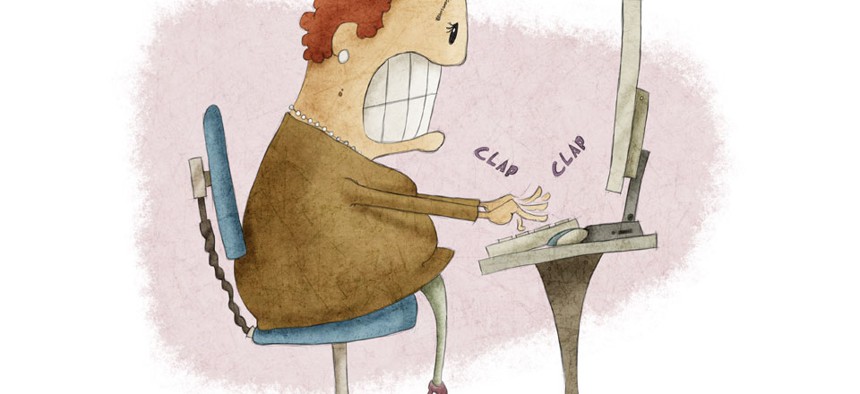
JrCasas/Shutterstock.com
Like Many Federal Leaders, You're Probably Stressed Out
When you’re feeling overwhelmed, don’t try to go it alone.
During the past week I’ve seen half a dozen people who are deeply important to me whom I hadn’t seen in over a year. During each conversation I found myself recounting how much 2013 sucked because of the stress I experienced. I’ve constructed a woe-is-me story that after telling several times I’ve actually found to be just shy of pathetic. We all have our stories. We all have stress.
I don’t have to recount the many 2013 events that created stress for federal leaders. Whether the October government shutdown, debt ceiling crisis, sequestration or general loss of confidence in government, it was a rough year and stress was in abundant supply. So, with so many experiencing the same events, why is it that some people managed to navigate 2013 with relative resilience and others (myself included) could barely cope?
Turns out the difference in how we cope has to do with the story we have about stress which in turn has everything to do with how stress affects us (or doesn’t). The logic and science of the story we construct about stress is explored in this TED talk; essentially turning upside down much of the prevailing narrative about what we’ve been told about stress.
The TED talk illustrates scientific evidence advocating social contact and connection when we are stressed. Of course, the truth is I don’t like this idea because when I am stressed I want to burrow down, shut others out, deal with my stuff and re-emerge when I’ve got it all handled. That’s what I tried to do all of 2013: Now I know why I was miserable last year. The scientific evidence highlights the problem with my 2013 approach to stress: it’s absolutely what NOT to do. Two of the most important things we can do when we are stressed are:
1. Reach out, connect and ask for support. Yikes. Ask for help? If you are like me, you don’t do that. You fancy yourself as the self-appointed fixer of other people’s problems, the one who always manages to save the day, turn people’s lives around, etc. (please make sure to note the sarcasm intended here). I had a real “aha” in summer of 2010 during a workshop, where we were working in pairs to practice effective coaching approaches. I always have others go first with their problems. Amazing how often time runs out and we never get to my problems. I now realize that has been unconsciously by design. No disclosure, no vulnerability and the demon that sentenced me to “looking good” wins again at the risk of allowing others to contribute to me.
Lesson No. 1: The science says when you are stressed, seek connection with others and allow them to contribute to you.
2. Reach out, connect and offer support. You are stressed out and can’t possibly deal with other people’s stuff. You’ve got your own life to deal with, right? Well, the very thing that might help you deal with that stress is to do something for someone else. Turns out the contact and caring/empathy that come with being of service in some way to others may be the perfect antidote to the stress you are feeling. It is true that whatever is the source of the stress may not go away but the story you have about the stress may shift—merely by focusing on others. And as the science indicates, the story about the stress may actually be the issue that you need to address.
Lesson No. 2: Counterintuitive as it may sound, next time the stress cavalry is after you, don’t run away—find something to do to make a difference to someone else.
What’s your story about stress?
(Image via JrCasas/Shutterstock.com)
NEXT STORY: What Brings You Joy as a Leader?







